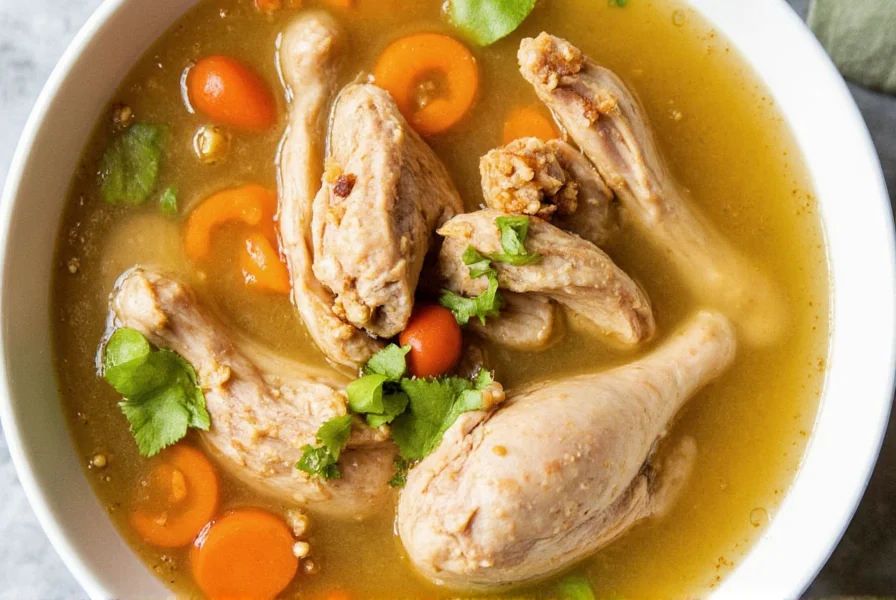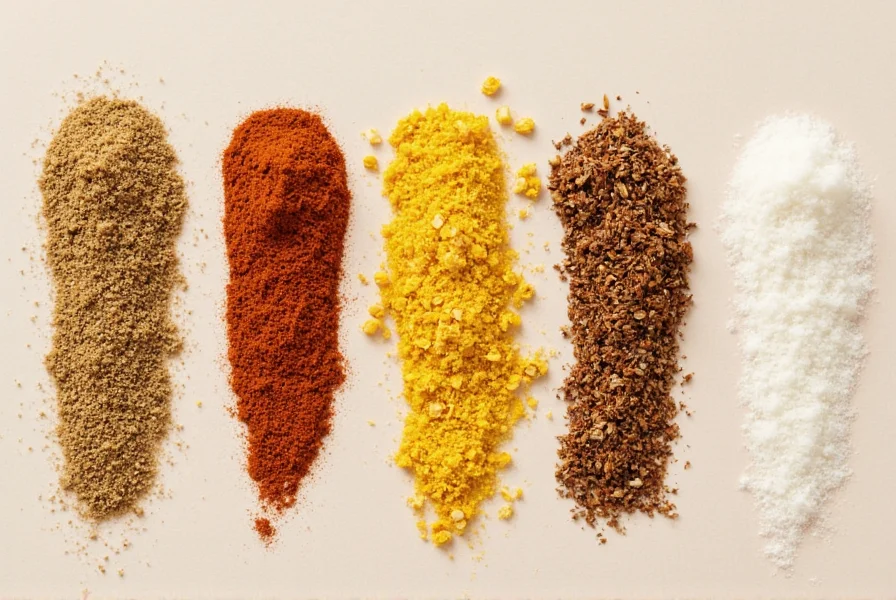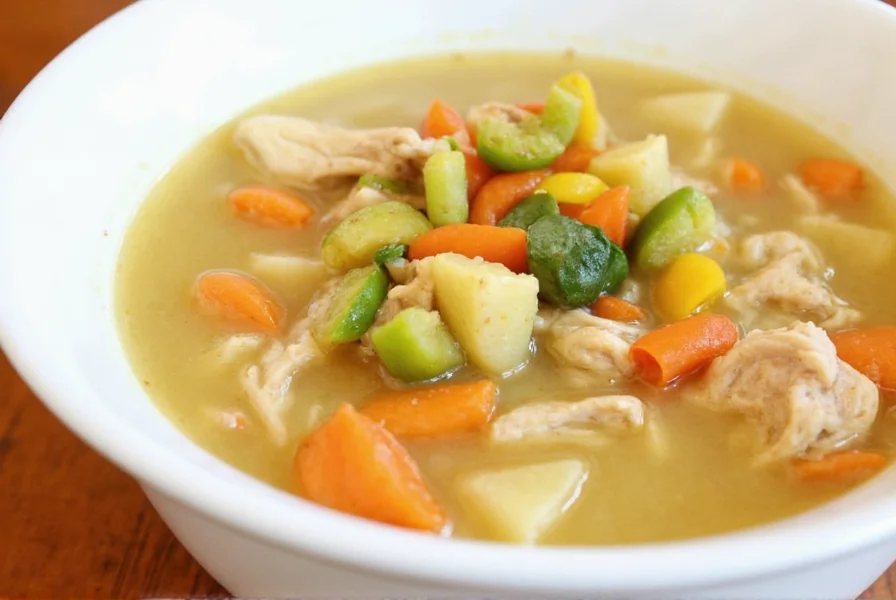Why Spices Matter in Chicken Soup
Choosing the right spices transforms chicken soup from ordinary to extraordinary. Here are the top 10 spices that deliver maximum flavor impact:
| Spice | Flavor Profile | Best For |
|---|---|---|
| Black Pepper | Peppery, sharp | Enhancing overall flavor |
| Garlic Powder | Umami, savory | Depth and richness |
| Onion Powder | Sweet, pungent | Broth foundation |
| Thyme | Earthy, minty | Classic chicken noodle |
| Bay Leaf | Bitter, aromatic | Slow-simmered soups |
| Paprika | Smoky, sweet | Color and warmth |
| Salt | Savory, briny | Flavor balance |
| Celery Seed | Herbaceous, bitter | Complexity in broth |
| Dill | Fresh, citrusy | Light, cold-weather soups |
| Turmeric | Earthy, musky | Vibrant, healthy soups |

How to Combine Spices Like a Pro
The real magic happens when you start pairing spices. Here are tried-and-true combinations:
- Classic Comfort Blend: Black pepper + onion powder + bay leaf + thyme
- Golden Warmth Mix: Turmeric + paprika + garlic powder + salt
- Mediterranean Twist: Dill + garlic powder + black pepper + celery seed
- Asian-Inspired Fusion: Garlic powder + ginger + star anise + soy sauce
Pro Tips for Using Spices in Soup
- Use whole spices like bay leaves and peppercorns at the beginning for slow infusion
- Add ground spices midway to avoid burning
- Fresh herbs like dill should be added near the end for maximum brightness
- Salt late, spice early — but adjust as you go!
Buying Guide: Choosing Quality Spices
1. Whole vs. Ground Spices
- Whole spices (peppercorns, bay leaves) retain freshness longer and offer deeper flavors
- Ground spices (garlic powder, paprika) lose potency faster; store away from heat and light
2. Freshness Matters
- Buy small quantities unless cooking frequently
- Ground spices last 6–12 months; whole spices up to 4 years
3. Popular Brands & Features
| Brand | Type | Features | Best For |
|---|---|---|---|
| McCormick | Ground & Whole | Affordable, widely available | Everyday cooking |
| Simply Organic | Organic | Certified organic, fair trade | Health-focused kitchens |
| Penzeys Spices | Mixes & Individual | Fresh-packed, high potency | Home chefs and enthusiasts |
| Spice Islands | Whole & ground | Consistent quality, long-term storage | Pantry staples |
Simple Spice-Infused Chicken Soup Recipes
1. Classic Comfort Chicken Noodle Soup
- Ingredients: Bone-in chicken, onion, carrots, celery, egg noodles, black pepper, bay leaf, thyme, garlic powder
- Method: Simmer for 45 minutes, strain, then return meat and veggies to pot
2. Golden Turmeric Chicken Coconut Soup
- Ingredients: Chicken thighs, coconut milk, turmeric, paprika, garlic, lime juice, cilantro
- Method: Sauté garlic, add spices, simmer chicken and coconut milk until tender. Finish with lime and herbs
3. Mediterranean Dill Chicken Lemon Soup
- Ingredients: Chicken breast, lemon, dill, celery seed, garlic, onion, egg whites
- Method: Poach chicken, whisk lemon and egg whites, gently reheat without boiling. Stir in dill before serving

Frequently Asked Questions (FAQs)
Can I Use Fresh Herbs Instead of Dried?
Absolutely! Use 3x the amount of fresh herbs compared to dried. Add them near the end of cooking to preserve brightness.
How Do I Prevent My Soup from Tasting Bitter?
Remove bay leaves after 20-30 minutes of simmering. Toast spices briefly in oil before adding. Balance bitterness with lemon juice or pinch of sugar.
What Spices Can I Use If I'm Allergic to MSG?
Use natural umami boosters: garlic powder, onion powder, black pepper, celery seed, dried mushrooms, turmeric, paprika, or Parmesan rind.
Do I Need to Toast the Spices Before Adding Them to Soup?
Yes! Toasting for 1-2 minutes releases essential oils. Recommended for paprika, cumin, turmeric, and whole spices. Avoid burning.
How Much Spice Should I Use in Chicken Soup?
Start with 1/4-1/2 tsp ground spices per 4 cups broth. Use 1-2 whole spices per pot. Always start low and adjust after 20 minutes of simmering.
Can I Substitute One Spice for Another in Chicken Soup?
Yes! Try rosemary for thyme, celery salt for celery seed, smoked salt for paprika, or saffron for turmeric. Start with half the amount when substituting.
When Is the Best Time to Add Spices During Cooking?
Whole spices at the beginning, ground spices midway, delicate herbs in last 5-10 minutes. Add salt in stages — beginning and near end.
How Long Do Spices Last Before Losing Potency?
Ground spices: 6-12 months. Whole spices: 2-4 years. Test freshness by rubbing between fingers — weak aroma means replace.
Which Spices Complement Creamy Chicken Soups Best?
Paprika, turmeric, pinch of cayenne, fresh dill/parsley, nutmeg, or white pepper. Avoid overpowering strong spices like cumin.
Are There Any Spices That Don't Work Well in Chicken Soup?
Overuse of cloves, allspice, cinnamon, oregano, or rosemary can dominate. Avoid pre-made blends with added sugar or preservatives.
Final Thoughts
Experimenting with spices is the key to crafting chicken soup that delights the senses. Start with classic combinations before trying bold flavors — the best soup is the one that makes your kitchen smell like heaven and your family ask for seconds.











 浙公网安备
33010002000092号
浙公网安备
33010002000092号 浙B2-20120091-4
浙B2-20120091-4